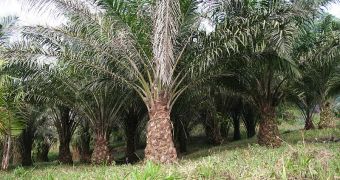Scientists know that the biofuel industry generates a considerable amount of greenhouse gas emissions (GHGs) through its manufacturing processes. Experts have warned major companies operating on this market that cutting down forests to obtain premium eco-friendly fuel is a rather messy business.
A recent study issued by the Center for International Forestry Research (CIFOR), published in Ecology and Society, notes that every operation of this kind comes along with a significant price tag. Moreover, in most of the cases, these actions are at the expense of the environment, Mongabay.com reports.
The study analyzes several ecosystems to reveal how significant the so-called “carbon debt” really is and how much time is needed to liberate the environment from its impact. CIFOR officials state that land conversion has the most devastating impact when it implies the destruction of palm oil grown on peatland.
Moreover, it appears that soy has the lowest “carbon debt,” but the ecosystem still needs a few decades to heal its wounds. The numbers are quite significant. To completely clear emissions generated through deforestation, palm oil needs 59-220 years, jatropha up to 310 years and soy only three decades.
The authors of this new report have investigated the effects of three kinds of biofuels obtained in six different countries. It appears that the value of the carbon debt depends on the type of land used to grow resources.
If major companies in the biofuel industry want to convince clients their premium fuels are entirely green, scientists aim to prove them wrong. It seems that once a biofuel requires the exploitation of woodlands, it could never be considered emission-free.
"It really matters how you produce biofuels and what land you grow it on as to whether you are going to get climate change benefits. Biofuels that result in the conversion of natural ecosystems are never going to be emission efficient," states Louis Verchot of CIFOR.
"This study argues for appropriate spatial planning and being aware that anything that you do in the name of the atmosphere could have unanticipated consequences unless you look at the whole production system," concludes Verchot.
As a result, experts say the industry could be guided towards a sustainable future by using only crops grown on surfaces of land unsuitable for the agricultural sector, in most cases permanently degraded.
At this point in time, they are certain that such areas are almost impossible to find, since the food demand has increased and every tiny part of land counts, when it comes to the demand of 7 billion hungry people.

 14 DAY TRIAL //
14 DAY TRIAL //